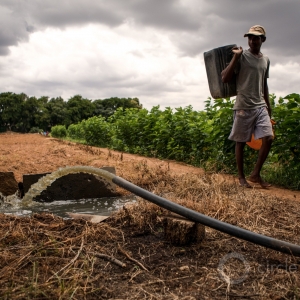The Stream, September 11, 2019: Radioactive Fukushima Water May Be Dumped Into Ocean, Japanese Official Warns
The Global Rundown
Japan may be forced to dump radioactive water from the damaged Fukushima nuclear plant into the ocean. Major flooding hits Sudan just weeks after new Prime Minister Abdalla Hamdok takes office. A new report claims that investing $1.8 trillion in climate adaptation over the next decade could produce $7.1 trillion in economic benefits. Stricter standards on arsenic in U.S. drinking water led to less public water system violations, a study finds. New South Wales, Australia, launches its emergency fish relocation from the lower Darling river system.
“We’re staring down the barrel of a potential fish Armageddon, which is why we’re wasting little time rolling out this unprecedented action.” –Adam Marshall, the agriculture minister of New South Wales, Australia, in reference to a “Noah’s Ark” plan to temporarily remove fish from the Lower Darling River. Several mass fish kills occurred in the collapsing river system last summer, prompting officials to move large numbers of fish to a healthier part of the waterway. The Guardian
Latest WaterNews from Circle of Blue
HotSpots H2O: In Somalia, Severe Food Shortages Follow Meager Harvest — Somalia’s cereal production is the worst since 2011, a year when famine killed more than 200,000 people in the East African country.
What’s Up With Water – September 9, 2019 — This week’s edition of What’s Up With Water includes coverage the aftermath of Hurricane Dorian in the Bahamas, the poor harvest in Somalia, and a plan by Houston, Texas, to refit the city’s sewer system.
By The Numbers
100,000+ Homes destroyed by severe flooding in Sudan since July. The ongoing floods have left dozens dead and many in need of aid. The disaster is the first major crisis for Sudan’s new Prime Minister, Abdalla Hamdok, who was inaugurated on August 21. Reuters
$7.1 trillion Economic benefits that could be produced if $1.8 trillion is invested globally in climate change adaptation between 2020 and 2030. The sums come from a report by the Global Commission on Adaptation, which is led by former U.N. Secretary General Ban Ki-moon, Microsoft founder Bill Gates, and World Bank CEO Kristalina Georgieva. The group is urging government to take rapid action on boosting climate resilience. Reuters
Science, Studies, and Reports
A new study by Oregon State University, published in Environmental Science and Technology, found that tougher federal standards for arsenic in U.S. drinking water, which were implemented in 2001, led to fewer violations among the country’s public water systems. In 2008, 1.3 percent of systems experienced arsenic violations, and in 2017, the number had fallen to 0.55 percent. Overall, the number of people drinking arsenic above federal limits fell by more than one million. Phys.org
On the Radar
After an earthquake and tsunami devastated the Fukushima nuclear plant in 2011, Japan has dealt with a growing amount of radioactive water at the plant, which is used to cool the plant’s fuel cores, then stored onsite. Now, more than 1 million metric tons of contaminated water exist, and storage space is running low–prompting the country’s environment minister to state that releasing the water into the ocean may be the only option. BBC
Kayla Ritter is a recent graduate of Michigan State University, where she studied International Relations and Teaching English to Speakers of Other Languages. She is currently based in Manton, Michigan. Kayla enjoys running, writing, and traveling. Contact Kayla Ritter







Leave a Reply
Want to join the discussion?Feel free to contribute!